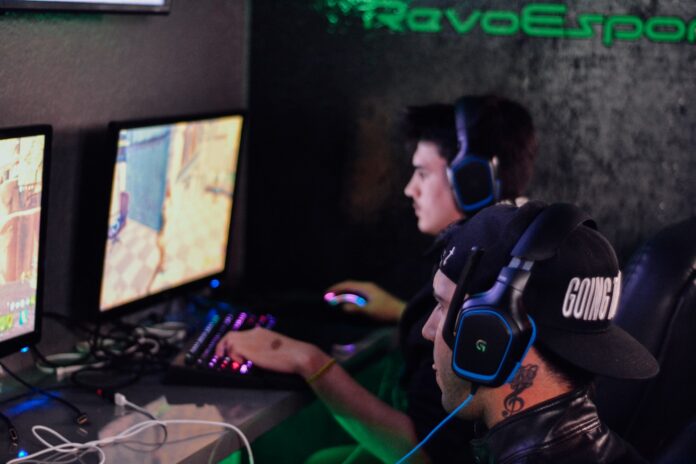If you spend any time in the gaming world, you’ve probably met your fair share of characters—good, bad, weird, and just plain silly. Of course, most of us have some friends who share our passion for gaming, but there are times when we wonder about these friends who seem to share our love of games or even know more about our favorite genres than we do.
But how well do you really know them? Can you be sure they’re your friend, or could they actually be something else? Are they as outgoing and friendly as they seem? Are they looking to rip you off? Or are they some kind of psychopath?
The gaming community consists of many different gamers, each with their level of dedication and skill sets. To play games with fellow players, you need to know what type of gamer you are dealing with. So without further ado, let’s discuss different types of gamers and how to tell them apart.
Different Types of Gamers and How to Tell Them Apart
All your gaming friends may seem to be the same on the surface, but if you look closer, you’ll see that there are different types of gamers out there, and each deserves a different kind of attention. Some are more serious about games than others, and some focus more on a casual play while others compete in tournaments.

Here are the four major types of gamers you are likely to come across:
The Aggressive Challenger
If you’re new to a game, do not be surprised if people are occasionally rude or dismissive toward you. Sometimes, when someone is perfect at a game—and being really good makes you feel great about yourself—it’s easy for them to believe they’re better than everyone else.
It may sound silly, but some gamers genuinely believe that every new player gets in their way and make it difficult for others to get better themselves.
So, if someone calls you out on your bad performance or seems overly aggressive during gameplay, don’t take it personally; just remind yourself that winning isn’t everything. People who play aggressively want what they want: victory at all costs.
The Relaxed Slacker
He’s never done anything particularly remarkable in his life, but he’s good at what he does. And for some reason (and often against better judgment), people continue to like him. He doesn’t worry about deadlines or responsibilities; he just plays games until he can play no more.
He isn’t the leader type, so it may take a while for him to develop a plan or figure out your next move in FIFA. But when he does come up with an idea, expect it to be fun or hilarious or both.

The Confident Comrade
Some gamers are there for you through thick and thin. It’s like having a best friend with benefits. These gaming partners may not be as close as family, but they have your back. If you find yourself struggling in a game, they won’t be afraid to call you out or step in to help.
They don’t mind playing games together, but it doesn’t make them inseparable. They still enjoy their own time away from each other, and that’s a great type of friendship to have because you can relax knowing someone has got your back when things get tough.
The Shy Casual Gamer
The Casual Gamer is somewhat new to gaming but has always loved it. This player may not be very competitive or experienced but still loves video games. They might be scared away by competitive gamers in social circles, so going solo is a smart move for them. Maybe they’ll make a friend while they’re at it.
If you happen to find yourself in a game with a Casual Gamer, go easy on them and make sure they feel welcome. Don’t expect them to perform at your level or understand how you communicate with your teammates. Just remember that every gamer has a story, so be nice.
6 Ways to Find Out Who Your Gaming Friends Are (or Are Not)
It’s common knowledge that when you play video games online, you’re playing with strangers—people whose names and faces you may never know in person. But sometimes, despite the anonymity of online gaming, real friendships develop between people from all over the world who share the same interests.
However, if you have no idea who your friends are in a game, the chances are that you might be stuck in a toxic gaming group where people lie about their identity or just go by aliases.
Here are some of our best tips on finding out who your gaming friends are (or are not).
1) Play games with them

The best way to get a sense of who someone is online is by playing with them regularly over time because they may prove themselves as someone worth knowing, or they won’t. If you want to find out if your gaming friends are more than just a passing interest, invite them and play games together.
This is a crucial step in learning how well you work with someone, and it’s also a great way to discover who they really are as people since it takes away all of their social media veneers. You might be surprised by what you find.
2) Do your research
If you know the name or contact information, you can run a simple check on Nuwber to know who they are and what they do apart from playing games.
Also, social media has become a big part of people’s lives, so if you and your gaming friends have linked up on social media, you can understand them based on what you know about their social media habits, like how often they post and when they are most active on each platform.
3) Ask open-ended questions

A person can’t answer open-ended questions with a simple yes or no. Instead, they encourage users to provide more detailed responses and elicit more thoughtful, personal responses instead of superficial ones.
Even closed-ended questions can benefit from being open-ended: For example, instead of asking a gamer who their friends are and how they know them, ask what kinds of games people play together, how people find out about games, etc.
4) Get to know their habits
Just like in-person friendships, your gaming friends have habits that define them. Take a close look at how your gaming friends play games—do they usually rush through to get quick results, or are they more interested in being thorough and methodical? Do they work together on group projects, or do they prefer completing their own quests?
Pay attention to what’s important to them, and you’ll soon begin identifying their quirks.
5) Learn their opinion on important topics

Get a good sense of how your gaming friends view life. How do they feel about their job, family, marriage, and more? All these factors can play into how dedicated they’ll be when gaming with you.
Make sure you discuss politics, economics, religion, or any other topic. It’s okay if you don’t agree on every subject; just get an idea of how they think. For example, if you find out that one of your friends is pro-life and another is pro-choice, you can prepare for some tension in future gaming sessions.
6) See how well they understand you
Learning how well your friends understand you is a great way to know if they’re true friends or just hanging around for fun.
If you find that these people don’t really get you or aren’t willing to listen, it might be time to reevaluate who makes up your gaming crew. We spend quite a bit of time getting close with people we game with, so keep an eye out for friends who might not always have your best interests.
To Sum It Up
The gaming community has so many different types of gamers, and it can be hard to identify who the people you play games with are. From casual gamers to esports players to people who just play mobile games on the bus, everyone has their own identity. Knowing your friends’ identities will make your experience more enjoyable and safe for all parties involved.
If you’re having trouble telling apart some of your gamer friends, look at their attitudes toward the game, how they interact with other players and their strategies during gameplay. You’ll have no problem telling them apart in no time.








